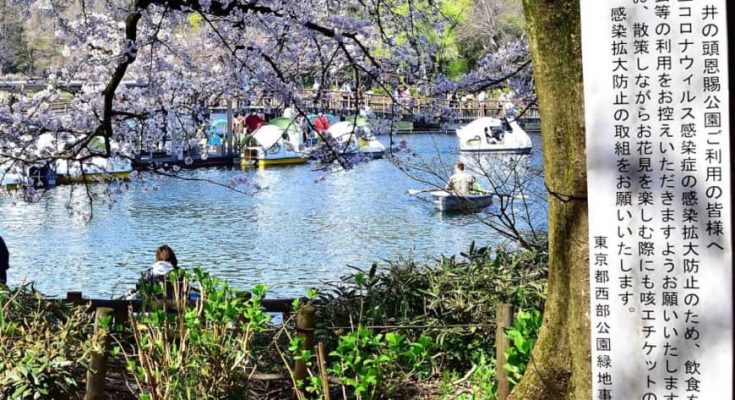Recently, my mornings have settled into a fairly predictable rhythm: Wake up, throw on some telework-appropriate clothes, make a cup of coffee, boot up my computer and check the latest news on COVID-19.
Watching the number of confirmed cases in Japan increase day by day, I often find myself starting to panic — yet I can’t help myself from checking. The hourly headlines coming out of the United States do little to ease my worries, particularly when combined with on-the-ground reports from my family and friends who are in complete lockdown.
My heartbeat quickens, my hands start to shake and I feel clammy. “Could it be a fever?!” I wonder, for the hundredth time. I grab my thermometer to check my temperature for what I know will be one of many times in the day. I’ve lived with Crohn’s disease, a chronic autoimmune condition that targets my digestive system, since I was 10. That means I am more at risk of becoming seriously ill if I catch the new coronavirus, despite the fact that I’m in my mid-20s, an age group who are less affected by it in general. Whenever I head into a public space, mask in hand, I find myself viewing anyone who so much as clears their throat with suspicion, hiding my face like a vampire shielding themselves from the sunlight. Living in this state is exhausting.
At this stage in the global pandemic game, I don’t think anyone who is paying attention to this thing would accuse me of overreacting. Global cases have already topped 530,000, deaths are over 24,000 and confirmed infections in Osaka and Hyogo are expected to surpass 3,300 in less than a week if reports are correct. Tokyo may be monitoring clusters of cases, but it feels like one wrong move — someone with a fever at a giant K-1 event, for instance — could tip the scales against us all.
Or maybe a hanami (flower viewing) party could provide the tipping point? Despite toilet paper and masks being in short supply, there has been no shortage of people out and about enjoying the cherry blossoms, even having picnics with groups of friends in defiance of posted signs. Looking at social media, bars and cafes have also been packed. Given the fact that COVID-19’s incubation period is around one to 12½ days according to the World Health Organization, we may not yet be feeling the harmful effects of social practices from a week ago.
The term “social distancing” has spread through English conversation as fast as the new coronavirus has, but among Japanese friends it’s still a pretty foreign concept. That’s unfortunate, since it’s touted as one of the key weapons in our counter-COVID arsenal. In face-to-face interactions, stretch out your arm to hold your phone in front of you — now triple that distance. Now stay that far apart the whole time. But I think Japan is at the point where it needs to reach for that other weapon: everyone self-isolating at home. As a more vulnerable member of the community, for the foreseeable future my health may be largely determined by the actions of total strangers and, in order for me to be sure they’re doing their part, I need the government to temporarily step in.
I was upset when, one by one, the museums shut their doors a few weeks ago. Now, I’m glad they took that action. Working from home was unsettling in the early days, but I got used to it. A nationwide lockdown may seem drastic at first but, if we do it properly, I’m willing to bet that, a few months from now, we’ll be glad we took that action.



